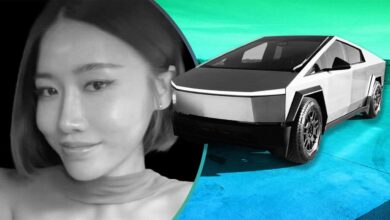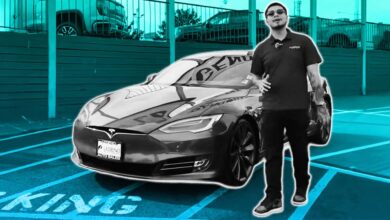Toyota Was ‘Flabbergasted’ By BYD’s EV Development Speed

- Toyota is finally taking electric vehicles seriously, but that moment didn’t come until after it saw the firepower of China’s automakers.
- During a joint development project, the Japanese automaker was reportedly shocked by BYD’s development speed.
- The automaker has learned lessons, but is still cautious with the Silicon Valley-like approach of moving fast and making mistakes.
Traditionally, it took four to five years for a car to go from a sketch on a blank piece of paper to a production model. In the fast-moving electric vehicle era, Chinese automakers are tearing up that playbook.
They’ve cut EV development timelines down to just two years, heralding a new era of rapid-fire rollouts. The approach is less like Detroit and more like Silicon Valley. New cars in China now arrive with the frequency of smartphone or laptop upgrades.
Naturally, traditional automakers are being forced to reckon with the warp-speed development cycles coming out of China. Even Toyota—the world’s largest carmaker by sales—has been rattled. It’s struggling to keep pace in a brutally competitive Chinese EV market where brands like BYD, Xpeng, Zeekr and Chery are duking it out for supremacy.
During the joint development of the bZ3 electric sedan with BYD, Toyota was reportedly stunned by the Chinese automaker’s pace and radically different engineering culture. When the bZ3 was still in development, Toyota was reportedly “flabbergasted” by BYD methods, Reuters reported on Thursday.

The automaker was surprised by how willing BYD engineers were to make major design changes late in the development. BYD, like many of its Chinese peers, has embraced a Silicon Valley-style ethos: move fast, break things, launch early and then patch later if any faults emerge.
That usually results in EVs that may not be obsessively refined at launch, but ones that are “good enough” to ship and then rapidly improved through their life cycle.
For Toyota, long revered for its meticulous, methodical approach to manufacturing, this new approach is almost blasphemous. Toyota has earned its reputation for reliability, for cars that outlast their owners and ones that can clock hundreds of thousands of miles without any major faults, in part by being very careful with updates.
According to the report, Toyota typically builds six distinct prototypes of a single model and tests each one over tens of thousands of real-world miles, all in the interest of bulletproof reliability.

Photo by: Kevin Williams/InsideEVs
While the automaker was genuinely impressed by BYD’s speed and agility, even acknowledging it had lessons to learn from the young rival, it remained cautious. Toyotas are some of the longest-lasting vehicles on the planet. It’s still too early to say how BYD’s EVs will fare years down the line.
BYD is also exporting its EVs and PHEVs across the world, becoming a global brand like Toyota. It offers many more models than Tesla, and constantly keeps upgrading them, unlike Tesla. It reportedly employs 900,000 employees, nearly as many as Toyota’s and Volkswagen’s workforces combined—primarily enabled by lower labor costs and a work-centric culture.
The bZ3 sedan—Toyota’s answer to the Tesla Model 3 in China—comes equipped with BYD’s Blade lithium-iron phosphate (LFP) battery, offering up to 600 kilometers of CLTC range. That translates to roughly 250 miles on the U.S. EPA cycle.
That’s not jaw-dropping by any measure, until you see the price: just $27,000 before any federal or local subsidies. For a spacious, modern EV, that’s a bargain.
Then there’s the bZ3X SUV, which Toyota co-developed with China’s state-owned GAC. That EV makes Toyota’s Western-market electric offerings look sort of… ancient.

It comes loaded with lidar, a Tesla-style infotainment screen powered by Qualcomm’s 8155 chip and Momenta’s latest advanced driver assistance (ADAS) suite running on Nvidia’s Orin X chip. The fully loaded bZ3X costs just $22,000, less than its sedan sibling.
The report added that Chinese automakers have been able to fast-track development because their engineers work 12 hours, six days a week. They build fewer prototypes and clock comparatively fewer real-world testing miles.
They’ve adopted a “fail fast” philosophy, relying more on simulations and AI instead of real-world testing. They also make their teams work on different areas of a vehicle in parallel, instead of a one-step-at-a-time approach that traditional automakers have adopted.
BYD is currently the world’s seventh-largest automaker by sales volume. It sold 4.3 million vehicles globally in 2024, less than half of Toyota’s 10.7 million. Its goal is to dethrone Toyota from that top spot. Only time can be the judge of whether BYD’s breakneck pace or Toyota’s obsession with perfection ultimately wins out in the long term.
Have a tip? Contact the author: suvrat.kothari@insideevs.com
Source link



